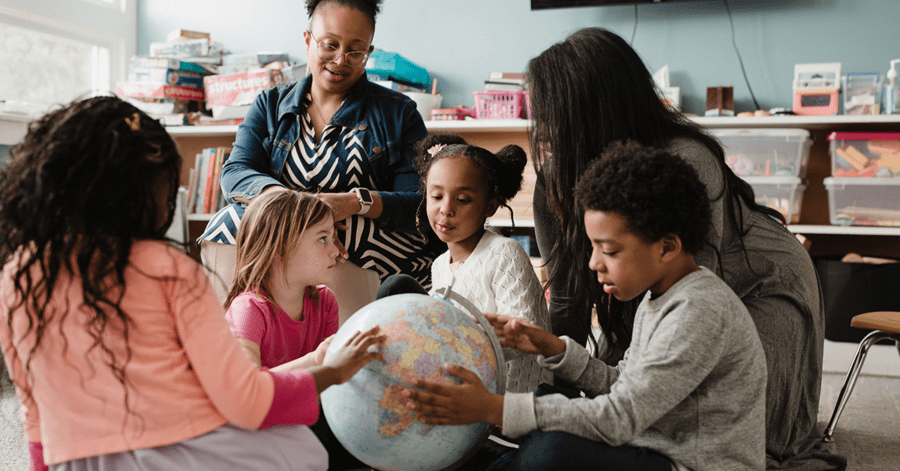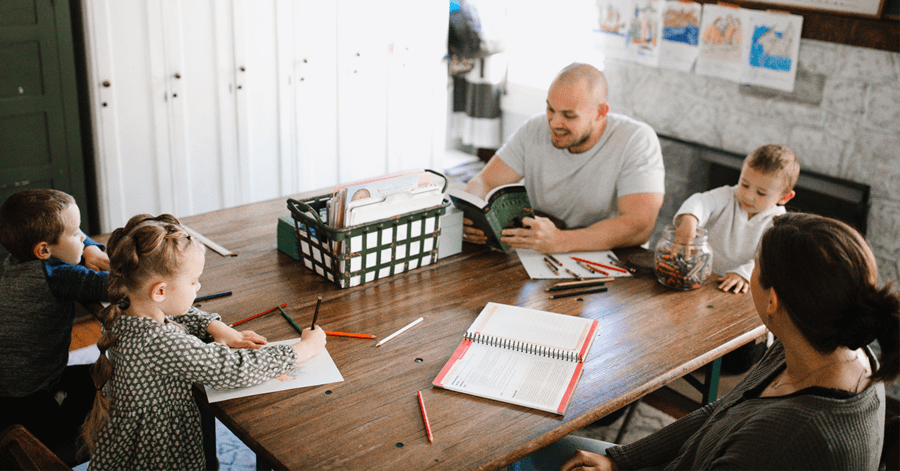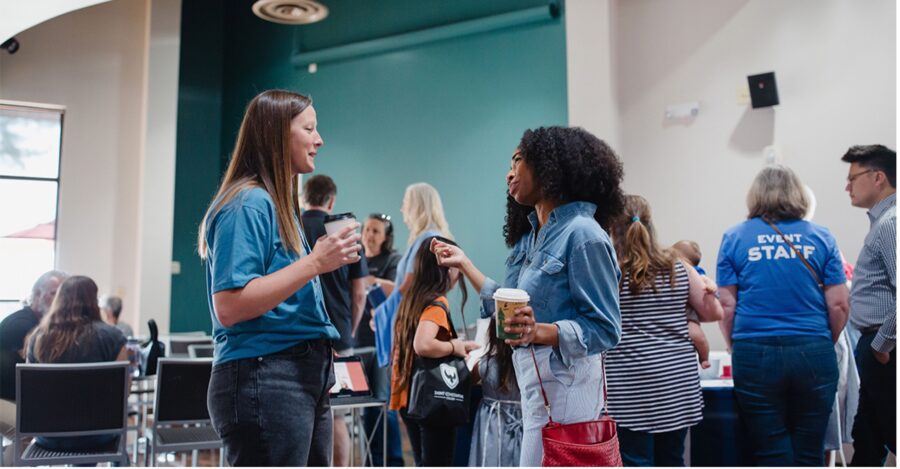One of the benefits of using the classical model of education in the Classical Conversations® Foundations program is that it is the most efficient way to educate. That is because we are following the nature of a child — the model that follows God’s design.
Wisdom Is the Goal of Education
Read through Proverbs and you will see these three words over and over: knowledge, understanding, and wisdom. The Proverbs proclaim knowledge and understanding are foundational for wisdom, which is the goal of education
Modern education models often skip to the final stage and emphasize creative output at age 6 and then deal only with grammar-level knowledge in many subjects at age 17. (At least that was my personal experience.) But, that will lead to frustrated young children and bored teenagers because their brains are not wired to do those things at those stages. If you understand and follow the model, learning will be joyful.
Trust the Model That the Foundations Program Uses
It is easy for new Classical Conversations parents to over-schedule and overwork themselves if they do not understand and trust the model.
- Starting around age 4, students need to memorize lots of facts and learn to read and write. (This is the knowledge, or grammar, phase.)
- Beginning around age 12, students then ought to understand those facts by engaging in asking questions and discovering answers while practicing writing and speaking skills. (This is the understanding, or dialectic, phase.)
- Finally, starting around age 14, students should focus on the outpouring: an elegant essay, an inspiring speech, or a challenging debate, all of which invite the older student to express original ideas. (This is the wisdom, or rhetoric, phase.)
Foundations Focuses on Memorization
In Foundations, the focus is on the first stage (i.e., memorizing facts). So, practice reciting facts every day. Memory work practice time is the fun part of our school day. We chant and sing and march while we review. I use the memory techniques demonstrated by our Tutor, or we make up our own. Do not stress over understanding all the facts at this point. Every topic covered in Foundations will be covered in depth during the Challenge program. I promise.
Let Your Children Choose Which Books to Read
If you can find library books about the topics learned in Foundations, that is great. Use those books for your children to practice reading or read aloud to them so they practice listening. My children are always eager to read about something their Foundations Tutor has memorized with them. Pick out lots of books and spread them on your coffee table and let them feast on the books! Let them choose which ones to read first, second, and third. Allow them to be curious and follow their curiosity. Let them discover the information! This will foster a love of learning, and you will find that if they have this joy in discovery, they will read more and learn more than they will if you assign reading and quiz them on it.
Feel like you need a quiz? Here is a good format: You say, “Tell me about that book.” You listen, smile, and say, “That is very interesting. Tell me more!” You listen some more, smile some more, and enjoy learning together.
Have Your Child Pick a Presentation Topic That Delights Them
During the week as you are reading library books, notice what seems to delight your child the most. The topic that delights your child can be his presentation topic. Have your child draw a simple picture or two based on the book and make a note card with some facts on it. Then have them practice giving a little talk to mom, dad, and their siblings using these things. By the time they have given this much effort to a topic, they will have learned a lot about it. No worksheet or quiz could compare to this rich experience.
Experiment With the Same Science and Art Materials at Home
Science and art projects are for getting the students’ hands on things. Children learn through touching things, so let them handle the science projects and let them experiment with the art and music. After doing a science or art project in Foundations, let your child experiment with the same materials again at home. Just set the materials out for them to experiment with. Let curiosity lead the way and see what they discover. If they ask questions, look up the answers together on the internet or find library books and read more about it.
Lots of Practice Is Required for Skills to Become Second Nature
When you add Essentials to Foundations, continue to keep the model in mind. All those papers written in Essentials are practice. That is not to say that your student should not do their best. It is to say, keep it in perspective: it is practice. Your focus should be on getting lots of practice, not creating a masterpiece each week. (Again, I promise that will come in the upper Challenges.)
Learning Should be Joyful, Especially During Foundations!
If you keep these principles (and promises) in mind as you plan and go about your school year, you and children should be able to enjoy learning together. If learning is not joyful, you may be focusing on the output before you have completed the input, or, put into classical terms, focusing on wisdom and understanding before building a firm foundation. Keep your days as simple as possible and allow time for discovery and the joy of building a good foundation.
Not yet a Classical Conversations member and interested in our community-based approach to homeschooling? We’d love to hear from you! To learn more about us, click here.
This article was originally written by Courtney Sanford on August 6, 2012.




